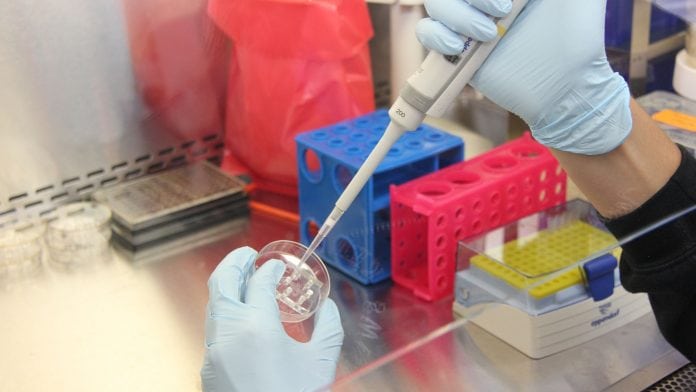
Giving the drug sodium thiosulphate (STS) following chemotherapy can reduce hearing loss in children treated for liver cancer, a new study reveals.
Results from the Cancer Research UK-funded study found that giving the highly effective drug STS after a type of chemotherapy called cisplatin reduces hearing loss in children treated for a childhood liver cancer called hepatoblastoma by nearly 50%.
These findings will help reduce the number of children having long-term side effects following the treatment for cancer.
“Impacting a child’s future development”
Dr Penelope Brock, trial lead and paediatric consultant at Great Ormond Street Hospital, said: “We’re lucky to have such an effective treatment for this type of liver cancer. But like many cancer treatments, there can also be long-term side effects.
“For children treated with cisplatin alone, a huge proportion are left with permanent hearing loss, which can be utterly debilitating. Even mild hearing loss can severely impact a child’s future development. Key consonants are heard at high frequencies like ‘s’, ‘h’, and ‘f’, and their loss can be particularly difficult for children who haven’t yet developed speech.
“This treatment combination could help ensure that parents aren’t faced with an upsetting scenario where successful cancer treatment comes at the cost of their child’s hearing.”
How many children suffered hearing loss?
From the 109 children in the trial, researchers found that while 63% of children given cisplatin alone suffered a degree of hearing loss, this was only the case for 33% of children also given STS, meaning their risk of this side effect was reduced by 48%.
There were no differences in overall survival or incidence of cancer returning, which means the treatment was just as effective if children were given STS.
Professor Pam Kearns, Cancer Research UK’s expert on children’s cancers at the University of Birmingham, said: “No child should have to suffer a disability as a result of their cancer treatment. Hearing is precious and we’re delighted to see that we can safeguard the future development of more children without compromising the chance of curing their cancer.”
What’s the next step?
These promising results mean that STS could become part of a new standard of care for treating hepatoblastoma, meaning researchers are now looking at whether it can be used for other children’s cancers where cisplatin is used as part of treatment.
The next stage is to get marketing authorisation from the US Food and Drug Administration (FDA) and European Medicines Agency (EMA).
It has already received a breakthrough therapy designation by the FDA and will be filed under a Paediatric Use Marketing Application in the EU.






















